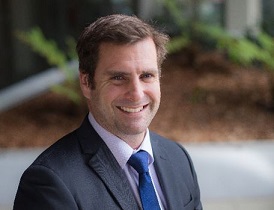
Ask an expert: Public Liability and Professional Indemnity senior claims consultant Chad Cossum
Why is LGIS encouraging me to settle my claim? This is a common question we’re asked when a local government is involved in litigation or court proceedings (being sued by a third party for compensation which is covered under the Scheme protection policy).
At first, it might seem contradictory. The lawyers representing your local government said it's unlikely you'll be liable for the claim and yet they recommend settling.
Why is this?
Such a recommendation is called making a “commercial” offer.
The reasoning is exactly that - it makes more commercial sense to settle a claim than it does to defend a claim all the way through the court process to the conclusion of a trial.
This is due to the legal costs involved in litigation.
It would be stating the obvious that legal costs involved in defending a claim all the way from court to trial can be considerably costly, and while the successful party does receive part of their legal costs back from the unsuccessful party, they do not receive the full amount.
A successful party will only get back what’s known as their “taxed” costs, which is usually between 65 – 75 per cent of their total costs.
Therefore, it’s a better commercial decision to offer the claimant $20,000 than it would to defend the claim all the way through to trial and “waste” $30,000.
If LGIS pays to defend the claim all the way through to trial, it would cost approximately $100,000 in legal fees.
Even if there was a win at trial, you would only be able to recover
$70,000 in legal costs from the other party (being 70 per cent of your total costs - your “taxed” costs).
This $30,000 is what’s known as “wasted legal costs” – costs that can never be recovered even if successful.
Therefore, even if LGIS and your local government win,
you would be out of pocket $30,000 (being $100,000 of total legal costs less the “taxed” costs recovered $70,000).
Using the example, the Scheme would be $10,000 better off making a “commercial” offer than it would defending a claim all the way through to trial even though we might have a good chance at winning.
This is the reason LGIS or the lawyers representing a local government may recommend making a commercial offer to the claimant early on in proceedings.
Of course, this is assessed on a case by case basis, and considering the context of the claim there may be reasons to defend a matter though to the conclusion of a trial.
Chad has several years’ experience within the insurance industry. He practiced insurance litigation, for both defendant and plaintiff law firms, for more than three years and has several years’ experience working with LGIS in insurance claims management, having recently been promoted to the team leader of all public sector claims within LGIS.